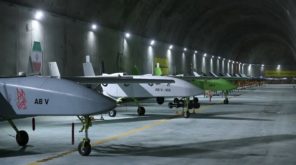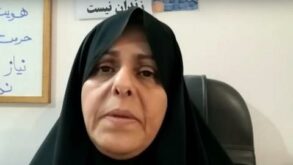Al-Monitor – After making an unannounced trip to Turkey, Iranian Foreign Minister Mohammad Javad Zarif tweeted on Aug. 29, “Just finished fruitful consultations with Turkish FM Mevlut Cavusoglu and President [Recep Tayyip] Erdogan on bilateral relations and regional cooperation in the face of malign US behavior. Off to Pakistan tomorrow to meet with new leadership. Our neighbors our priority.” The tweet was accompanied by pictures of Zarif shaking hands with Erdogan and Cavusoglu.
The trip took Iranian media by surprise. Typically, such visits are announced well in advance. The stated aim of the trip was to discuss “bilateral ties” and likely US sanctions against Iran. Tehran’s diplomacy will have to go into overdrive if it hopes to thwart the sanctions. One strategy appears to involve projecting an upbeat outlook. “The Americans have shown that they are not able to apply pressure and in reality cannot force concessions,” Zarif told reporters in Ankara.
Another strategy has been to highlight the divisions between the United States and its allies in Europe and in the Middle East. “Even [America’s] own allies are not immune to such pressures,” Zarif said, likely in reference to the US decision to apply sanctions against Turkey over the fate of a detained American pastor.
“Now our friends in Turkey and many of America’s allies in Europe have come to the conclusion that the United States is not a reliable partner,” Zarif continued. “America’s behavior has shown that countries have to make other plans for their futures.”
Zarif said that what Iran seeks, and has always sought, is the “legal expansion of economic ties” between countries in the region. He added that Iran has always viewed Turkey as a “good economic partner” and noted that Iran has had positive cooperation on regional matters with Turkey, including trilateral and multilateral agreements. Iran along with Turkey and Russia have held a number of meetings over the civil war in Syria, where all three have gained considerable influence. Zarif said that Iran, Turkey and Russia will hold a trilateral meeting in early September, explaining that one reason for his Ankara visit had been to hold consultations in advance of that meeting.
Zarif’s trip to Pakistan will mark his first meeting with the country’s new prime minister, Imran Khan. While Iran’s ties with Pakistan are not as strong as those it has with Turkey, particularly economically, there are a number of issues of mutual importance to the two neighbors. The Iran-Pakistan natural gas pipeline may see major developments under a new Pakistani leadership, and Iran’s desire for more forceful control of the Pakistan border to prevent terrorist attacks may also be a topic of discussion.
Iranian conservative media picked up on an article by Arab commentator Abdelbari Atwan in Rai al-Youm in which he posited that Pakistan, along with Turkey, are in line for a political realignment with Iran. The conservative Mashregh News translated portions of the article to Persian, including the idea of the “birth of a coalition between Turkey, Iran and Pakistan”, underlining Atwan’s assertion that Ankara’s decision to proceed with the purchase of the Russian S-400 surface-to-air missile defense system — despite US objections and Washington linking the decision to the purchase of American F-35 jets — shows that Turkey is pursuing its own path in defense.
In this vein, Mashregh also featured a portion of Atwan’s article which claimed that like Pakistan and Iran, Turkey is seeking to be self-sufficient in its missile capacities, and given that Turkey’s actions suggest that it is likely on the way out of NATO, it will need a new regional alliance and one that will help it become self-sufficient in its defense and missile capacities. As such, Mashregh News took care to include Atwan’s contention that Turkey, Iran, and Pakistan, along with Iraq and even Syria could build such a loose coalition. Of note, together with news sites such as Tasnim and Nasim, Mashregh is widely seen as close to the Islamic Revolutionary Guards Corp (IRGC).
 Shabtabnews In this dark night, I have lost my way – Arise from a corner, oh you the star of guidance.
Shabtabnews In this dark night, I have lost my way – Arise from a corner, oh you the star of guidance.


